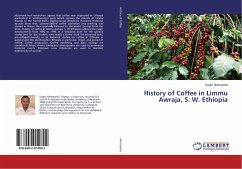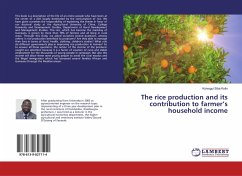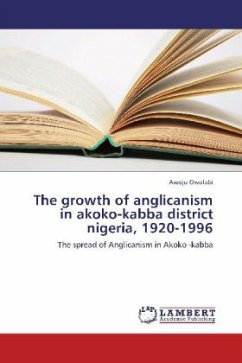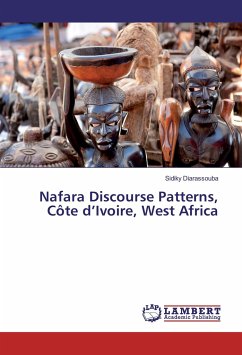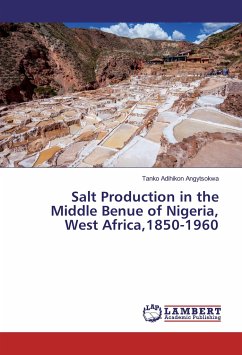
Salt Production in the Middle Benue of Nigeria, West Africa,1850-1960
Versandkostenfrei!
Versandfertig in 6-10 Tagen
43,99 €
inkl. MwSt.

PAYBACK Punkte
22 °P sammeln!
This book examines the salient dynamics of traditional salt production in the Middle Benue region of Nigeria. Salt has been a major indispensable article of trade in the Middle Benue Region and in fact, in many West African communities since the pre-colonial era. The reasons for its immense significance hinges upon its uses in cooking(foo), its medicinal, industrial, political and socio-cultural significance to the people. Retrospectively, the various salt producing communities within this study area, viz: Akwana, Keana, and Akiri were prominent areas that flourished during this epoch as a res...
This book examines the salient dynamics of traditional salt production in the Middle Benue region of Nigeria. Salt has been a major indispensable article of trade in the Middle Benue Region and in fact, in many West African communities since the pre-colonial era. The reasons for its immense significance hinges upon its uses in cooking(foo), its medicinal, industrial, political and socio-cultural significance to the people. Retrospectively, the various salt producing communities within this study area, viz: Akwana, Keana, and Akiri were prominent areas that flourished during this epoch as a result of salt. The salt of these villages within this region served as a "uniting or bond article "that brought people from different regions together for exchange. This book the critical role of salt in this region and how European Colonialism affected its development and made a case for its modernization




